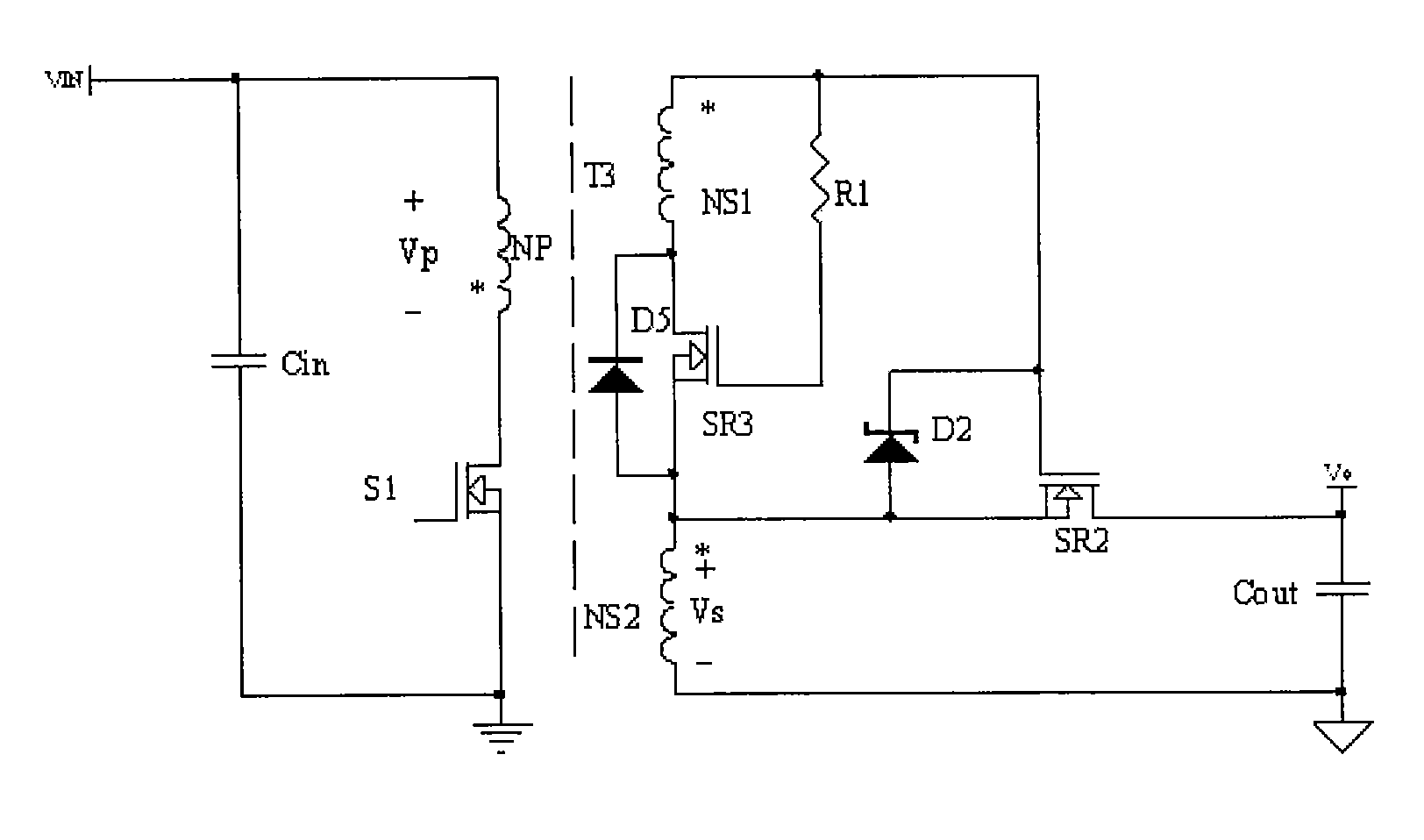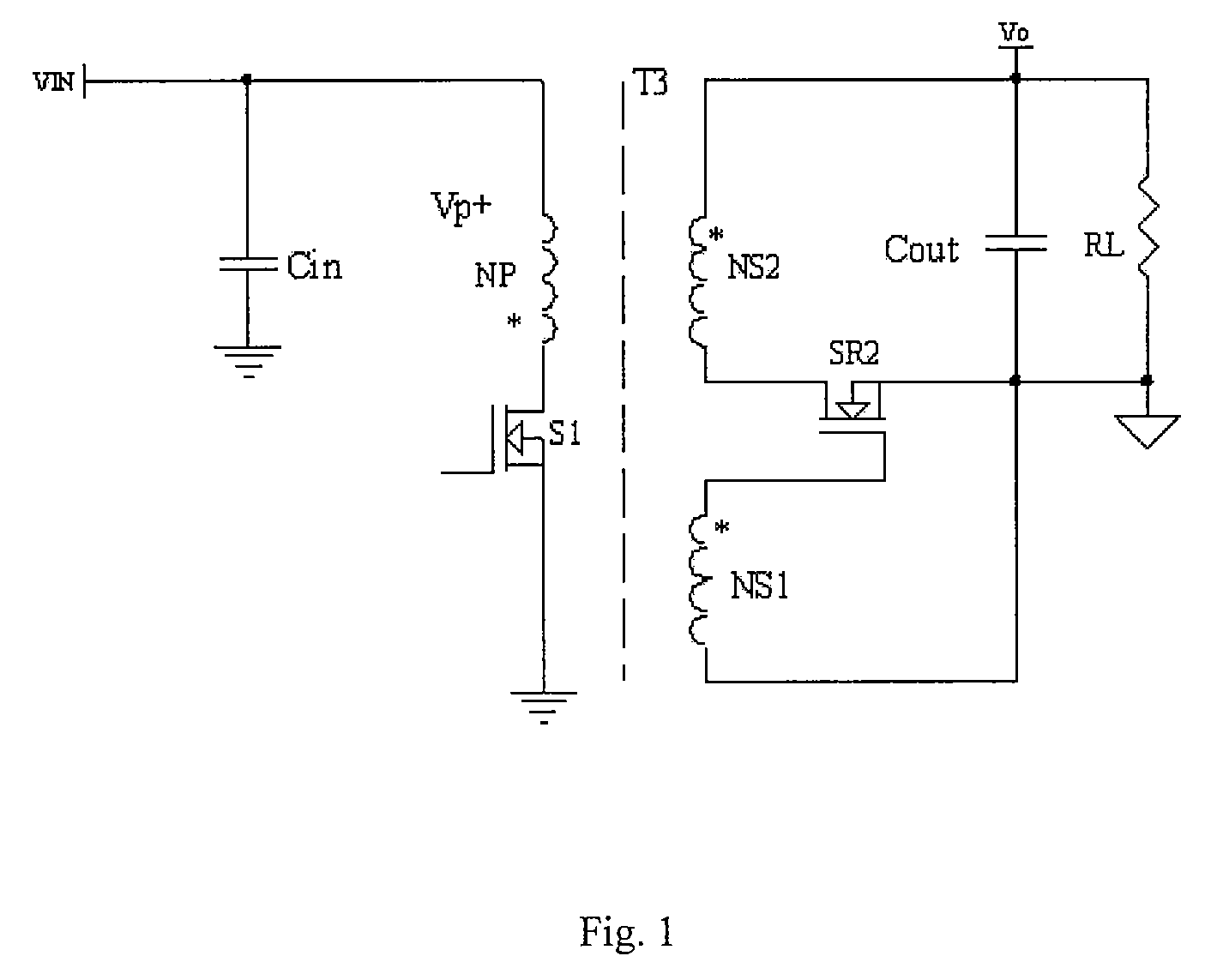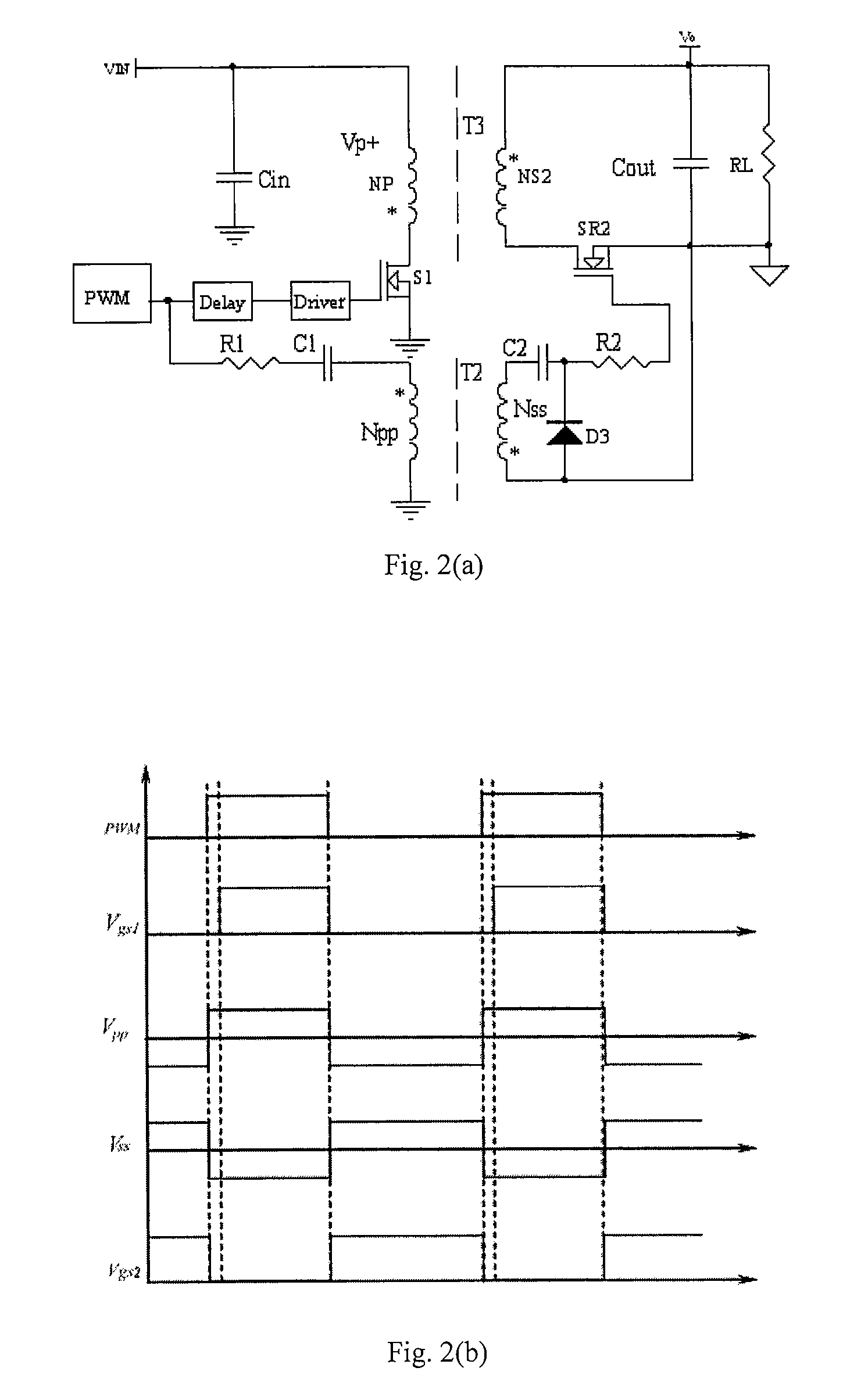DC-DC flyback converter having a synchronous rectification self-driven circuit
a self-driven, synchronous technology, applied in the direction of dc-dc conversion, power conversion systems, climate sustainability, etc., can solve the problems of limited application of some self-driven converters, permanent damage to srb>1/b> or srb>2, and the complexity of existing self-driven circuits is often too complex to be widely adopted in practical applications, etc., to achieve simple structure, reduce cross conduction loss, and reduce cost
- Summary
- Abstract
- Description
- Claims
- Application Information
AI Technical Summary
Benefits of technology
Problems solved by technology
Method used
Image
Examples
Embodiment Construction
)
[0026]Referring to FIG. 3(a), a flyback converter employing the first type of self-driven circuit for the synchronous rectifier in accordance with the present invention includes a primary power circuit, a secondary power circuit and a self-driven circuit. The primary power circuit includes a main power MOSFET S1, a primary winding NP of the transformer and an input capacitor Cin. The secondary power circuit includes a secondary winding NS2 of the transformer, a rectifier SR2 and an output capacitor Cout. The self-driven circuit mainly consists of a negative voltage removal circuit and a synchronous rectifier trigger switch-off circuit. The negative voltage removal circuit is formed by an N channel MOSFET SR3 and a resistor R1, while the synchronous rectifier trigger switch-off circuit is made up of MOSFET SR3, winding NS1 and Zener diode D2. The drive voltage of the synchronous rectifier is mainly generated by adjusting the turns ratio of NS1 and NS2. In the negative voltage remova...
PUM
 Login to View More
Login to View More Abstract
Description
Claims
Application Information
 Login to View More
Login to View More - R&D
- Intellectual Property
- Life Sciences
- Materials
- Tech Scout
- Unparalleled Data Quality
- Higher Quality Content
- 60% Fewer Hallucinations
Browse by: Latest US Patents, China's latest patents, Technical Efficacy Thesaurus, Application Domain, Technology Topic, Popular Technical Reports.
© 2025 PatSnap. All rights reserved.Legal|Privacy policy|Modern Slavery Act Transparency Statement|Sitemap|About US| Contact US: help@patsnap.com



